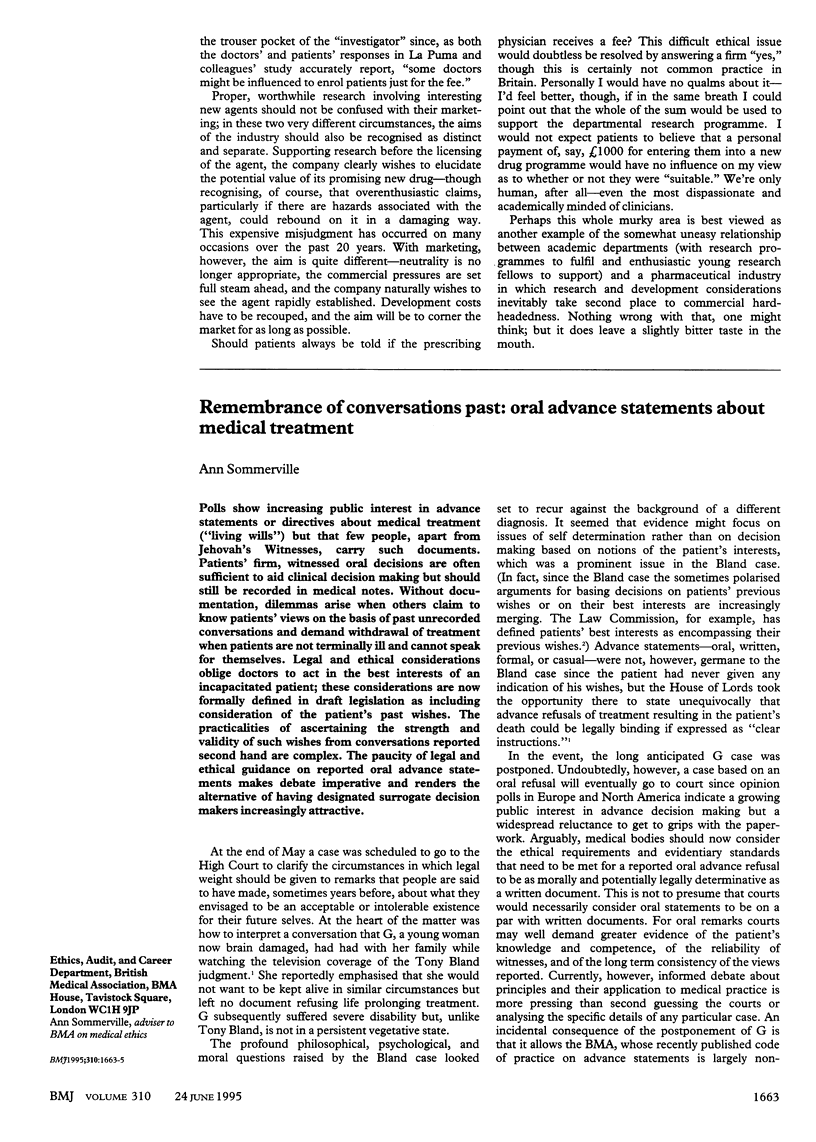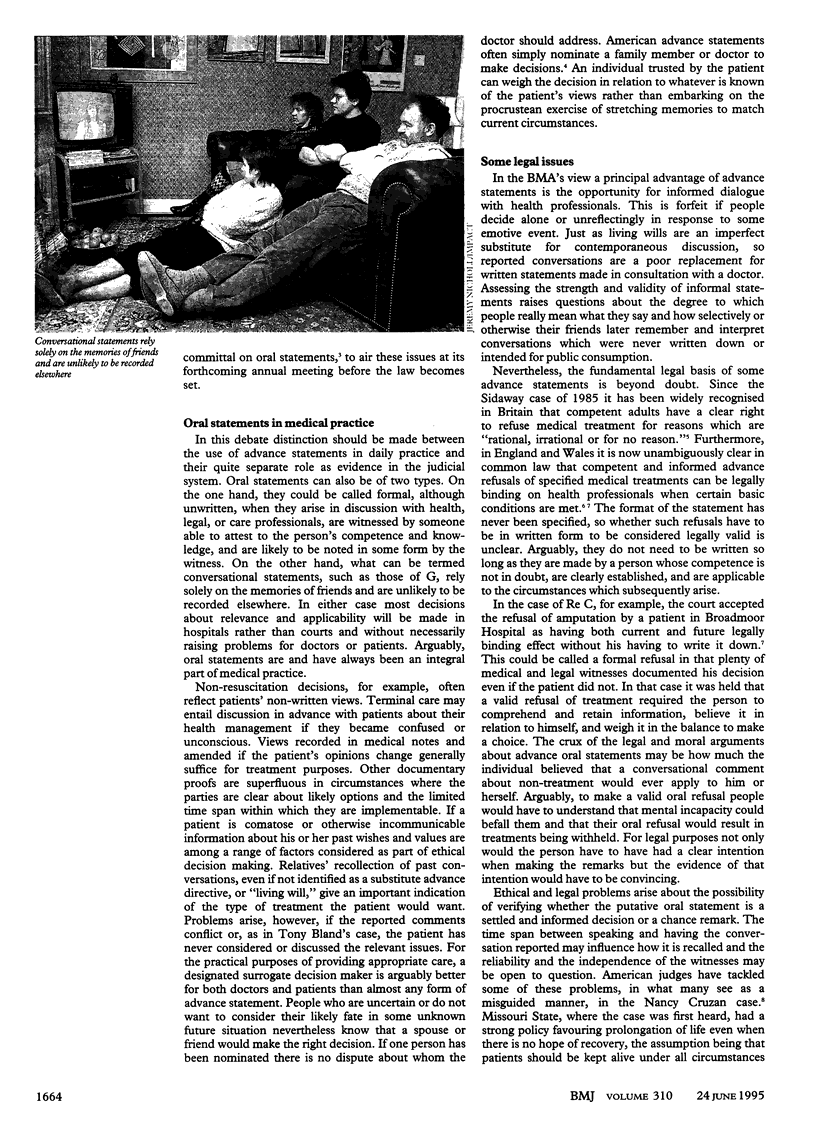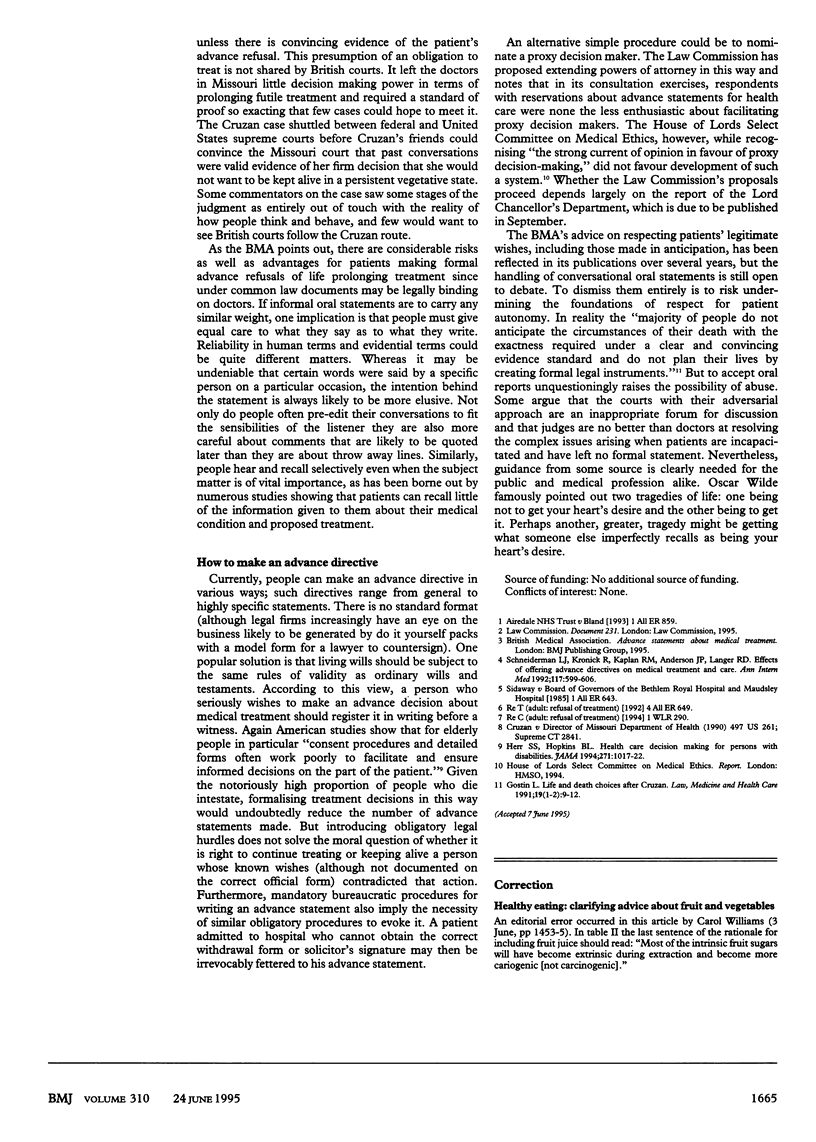Abstract
Polls show increasing public interest in advance statements or directives about medical treatment ("living wills") but that few people, apart from Jehovah's Witnesses, carry such documents. Patients' firm, witnessed oral decisions are often sufficient to aid clinical decision making but should still be recorded in medical notes. Without documentation, dilemmas arise when others claim to know patients' views on the basis of past unrecorded conversations and demand withdrawal of treatment when patients are not terminally ill and cannot speak for themselves. Legal and ethical considerations oblige doctors to act in the best interests of an incapacitated patient; these considerations are now formally defined in draft legislation as including consideration of the patient's past wishes. The practicalities of ascertaining the strength and validity of such wishes from conversations reported second hand are complex. The paucity of legal and ethical guidance on reported oral advance statements makes debate imperative and renders the alternative of having designated surrogate decision makers increasingly attractive.
Full text
PDF


Images in this article
Selected References
These references are in PubMed. This may not be the complete list of references from this article.
- Gostin L. Life and death choices after Cruzan. Law Med Health Care. 1991 Spring-Summer;19(1-2):9–12. doi: 10.1111/j.1748-720x.1991.tb01787.x. [DOI] [PubMed] [Google Scholar]
- Herr S. S., Hopkins B. L. Health care decision making for persons with disabilities. An alternative to guardianship. JAMA. 1994 Apr 6;271(13):1017–1022. [PubMed] [Google Scholar]
- Schneiderman L. J., Kronick R., Kaplan R. M., Anderson J. P., Langer R. D. Effects of offering advance directives on medical treatments and costs. Ann Intern Med. 1992 Oct 1;117(7):599–606. doi: 10.7326/0003-4819-117-7-599. [DOI] [PubMed] [Google Scholar]



